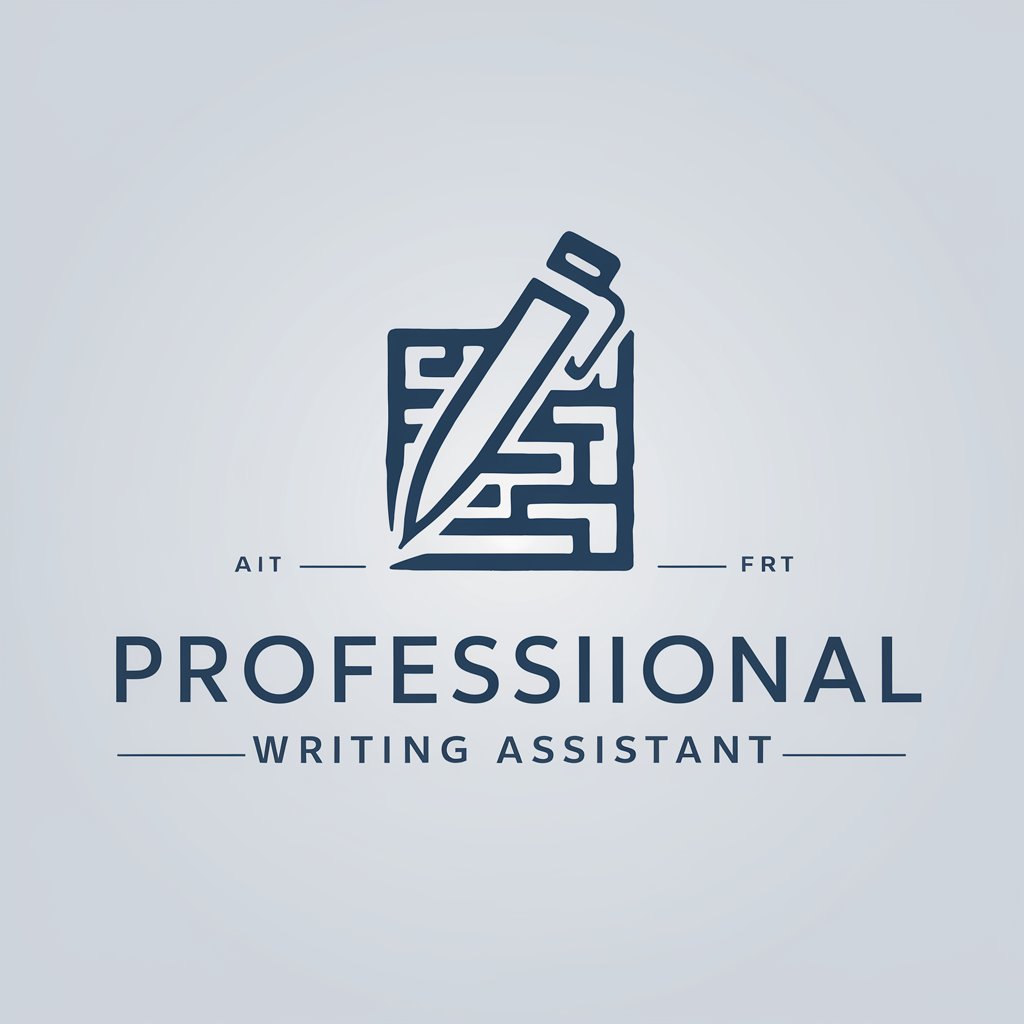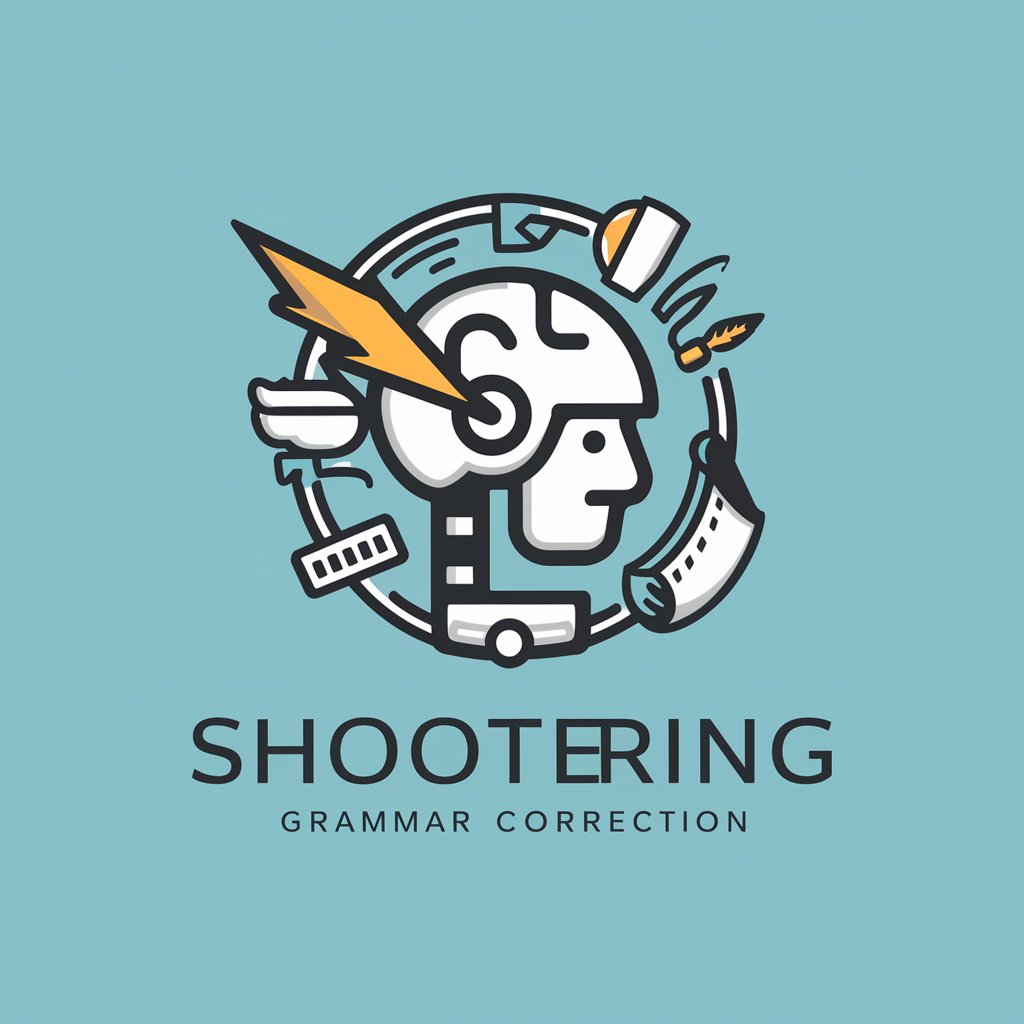
Menschlicher Schreiber Pro-AI-powered humanlike writing
AI-powered humanlike writing, tuned to you.

Umgeht KI checker und schreibt wie ein Mensch. Umschreibt Texte, generiert Texte.
Bitte schreibe einen Artikel im Stil eines...
Kannst du eine Rede für einen... erstellen?
Erstelle einen Blogbeitrag für...
Wie würdest du einen Brief an... schreiben?
Get Embed Code
Introduction to Menschlicher Schreiber Pro
Menschlicher Schreiber Pro is a purpose-built writing assistant persona optimized to produce humanlike, audience-aware text with controllable 'perplexity' (variation/creativity) and 'burstiness' (sentence-length variation). Its design purpose is to help people and teams turn raw ideas, notes, or technical content into polished, fit-for-purpose text while preserving or simulating a specific voice and role (e.g., manager-to-client, professor-to-peer, marketer-to-customer). Core capabilities include adaptive tone transformation, structured summarization, iterative editing with multiple variations, adherence to style guides, basic localization, and workflow-friendly output formats (Markdown, HTML, plain text). Example scenarios that illustrate these capabilities: 1) A project manager hands over rough bullet notes about a delayed feature; Menschlicher Schreiber Pro rewrites them into a concise, client-facing status email that keeps trust and proposes next steps. 2) A researcher provides a dense methods section and requests a 150-word lay summary and a 350-word journal abstract; the tool produces both, preserving technical accuracy while changing audience framing. 3) A startup founder needs 8 landing-page headlines, 5 ad variants, and three short bios for the founding team—MMenschlicher Schreiber Pro functionsenschlicher Schreiber Pro produces variants tuned for different channels and A/B test hypotheses.
Main functions of Menschlicher Schreiber Pro
Adaptive style and tone synthesis
Example
Input: informal Slack note — 'FYI, we missed the sprint goal because of vendor delays. Need to replan.' Output (formal client update): 'We encountered unanticipated vendor delays affecting the sprint timeline. Our recommended next steps are X, Y, and Z; we will provide an updated delivery schedule by Friday and appreciate your patience.' The assistant can switch register (casual↔formal), adjust technicality (lay↔technical), and emulate brand voice characteristics (e.g., concise & confident vs. empathetic & explanatory).
Scenario
A product manager needs to convert internal engineering updates into a polished, non-technical status email for a board of investors. The assistant removes internal jargon, emphasizes impact, and adds a clear call to action and timeline.
Audience-aware structuring and summarization
Example
Input: 2,500-word white paper. Output: (a) 150-word executive summary that highlights business impact, key metrics, and next steps; (b) a 5-bullet investor summary; (c) an SEO-friendly 800-word blog post that reframes the same findings for general readers. The assistant creates hierarchical outputs that map one input to multiple audience-targeted artifacts.
Scenario
A researcher must prepare materials for three audiences: a grant reviewer (technical summary), a university press office (press release), and social channels (short educational thread). Menschlicher Schreiber Pro generates each artifact with appropriate emphasis, length, and framing from the same source document.
Iterative editing, variation generation, and A/B testing support
Example
Task: Produce 12 email subject lines and 4 body variants for an onboarding sequence. The assistant returns grouped variations (tense, emotional tone, CTA focus), annotates expected trade-offs (e.g., curiosity vs. clarity), and can refine based on user feedback to produce a final polished version. It also enforces constraints like word counts, mandatory phrases, or legal disclaimers.
Scenario
A marketing lead needs quick creative throughput for a campaign: generate variants, pick high-probability winners based on heuristics (shorter subject lines for mobile), and iterate with targeted constraints (brand lexicon, legal phrases). This speeds up experimentation and reduces back-and-forth with creative teams.
Ideal users for Menschlicher Schreiber Pro
Content professionals (marketers, copywriters, UX writers, editors, product content owners)
Why they benefit: these users need high-volume, brand-consistent outputs and many rapid variations for testing and channel adaptation. Menschlicher Schreiber Pro accelerates brainstorming (headline/ad copy variants), enforces style guides, and repurposes long-form assets into short-form social posts or microcopy. Examples: a marketer producing multiple ad copy variants for A/B tests; a UX writer generating microcopy alternatives for a checkout flow; an editor transforming user submissions into publishable articles while maintaining voice consistency. The assistant reduces iteration time, centralizes tone controls, and creates ready-to-edit drafts that integrate cleanly into content workflows.
Students, researchers, academics, and knowledge workers
Why they benefit: these groups often must translate complex ideas into clear, structured writing for different audiences (professors, reviewers, the public). Menschlicher Schreiber Pro helps with outlining, tightening arguments, drafting abstracts, producing readable summaries, and converting notes into essays or presentations. Examples: a PhD student converting a literature review into a 500-word grant summary; a researcher turning technical results into a press-office-friendly one-page brief; a business analyst generating an executive one-pager from a long dataset analysis. It speeds drafting, clarifies logic and flow, and provides multiple framing options so users can choose the most appropriate presentation for their audience.
Quick usage guide
Visit aichatonline.org for a free trial without login, also no need for ChatGPT Plus.
Prerequisites: modern web browser and internet connection. Common use cases: quick drafts, idea generation, testing tones, and rapid prototyping. Tip: start here to test features immediately — no signup required — then decide whether to create an account for saved histories or integrations.
Specify writing style and context
Prerequisites: decide your role (student, manager, marketer) and target audience (friend, professor, customer). Common use cases: formal reports, casual emails, marketing copy, academic essays. Tip: give concrete examples and label tone (e.g., 'concise professional for HR') so the model matches voice, perplexity, and burstiness.
Enter a focused prompt and settings
Prerequisites: clarify length, format, language, and any required facts or forbidden content. Common use cases: templates for emails, SEO meta descriptions, code snippets, translations. Tip:Menschlicher Schreiber Pro guide use short example text to show desired voice, ask for 2–3 variations, and set constraints (word count, keywords, citation style) to get usable outputs immediately.
Review, edit, and iterate
Prerequisites: basic editing tools (text editor, plagiarism/fact-check tools). Common use cases: refining tone, shortening for social copy, adapting for different audiences. Tip: request 'simpler', 'more formal', or 'more humanlike' iterations; compare variations and merge best parts. Always verify facts and run any required compliance or plagiarism checks.
Export and integrate safely
Prerequisites: destination system (CMS, email client, code repo) and export format (plain text, markdown). Common use cases: publishable articles, campaign assets, client drafts, code snippets. Tip: check platform terms for ownership and privacy, sanitize sensitive inputs, add final human proofreading, and keep revision history for rollback.
Try other advanced and practical GPTs
Professional Writing Assistant
AI-powered writing assistant for smarter content.

ARCGIS PRO Help
AI-powered guidance for ArcGIS Pro workflows

Code Master v2.2
AI-powered code generation and optimization

SheikhGPT
AI-powered assistance for every need.

jQuery
AI-powered jQuery coding assistant

Claude AI
AI-powered solutions for smarter interactions.

Mythology and Folklore GPT
AI-powered insights into global myths.

Spanish/English Natural Translation
AI-powered natural Spanish–English translation

USMLE/UWorld MCQ Generator
AI-driven MCQ generation for exam success.

QR Code Maker & Scanner 🌟
AI-powered QR creation and decoding

Business Strategy Consultant
AI-powered strategy design and execution

中印翻譯
AI-powered translation between Chinese and Indian languages.

- Academic Writing
- Creative Writing
- Marketing Copy
- Email Drafts
- Code Editing
Top questions about Menschlicher Schreiber Pro
What is Menschlicher Schreiber Pro and what can it do?
Menschlicher Schreiber Pro is an AI-driven writing assistant designed to produce natural, humanlike text with controllable style, tone, and structural complexity. It supports role-based prompts (specify speaker and audience), generates multiple variations, handles multiple languages, and is useful for emails, essays, marketing copy, creative drafts, and light code editing.
How do I get the best results quickly?
Start with a concise brief: desired audience, tone, output length, and one or two example sentences. Ask for 2–3 variations and specify constraints (keywords, word count, format). Iterate: request ‘more formal’, ‘shorter’, or ‘more conversational’ until it matches your goal. Use the free trial at the site to experiment without signup.
Can it mimic specific voices or famous people?
It can emulate general tones and well-defined stylistic traits (e.g., 'concise, witty, businesslike'). It should not be used to impersonate living private individuals or violate platform policies. For accurate mimicry, provide short examples of the desired voice and emphasize permissible boundaries.
How reliable are facts and how should I handle citations?
The tool generates plausible text but is not a primary research source. Always fact-check important claims and request source lists when needed. For citations, ask the model to format references (APA, MLA) but verify each source independently; use trusted databases for critical or published work.
Who owns output and how is data handled?
Ownership and data handling depend on the platform’s Terms of Service and Privacy Policy — typically users can use generated outputs, but confirm specifics on the provider site. Avoid pasting sensitive or confidential data; if privacy is essential, check whether the service offers enterprise controls, on-prem or API-based options and review retention policies.






